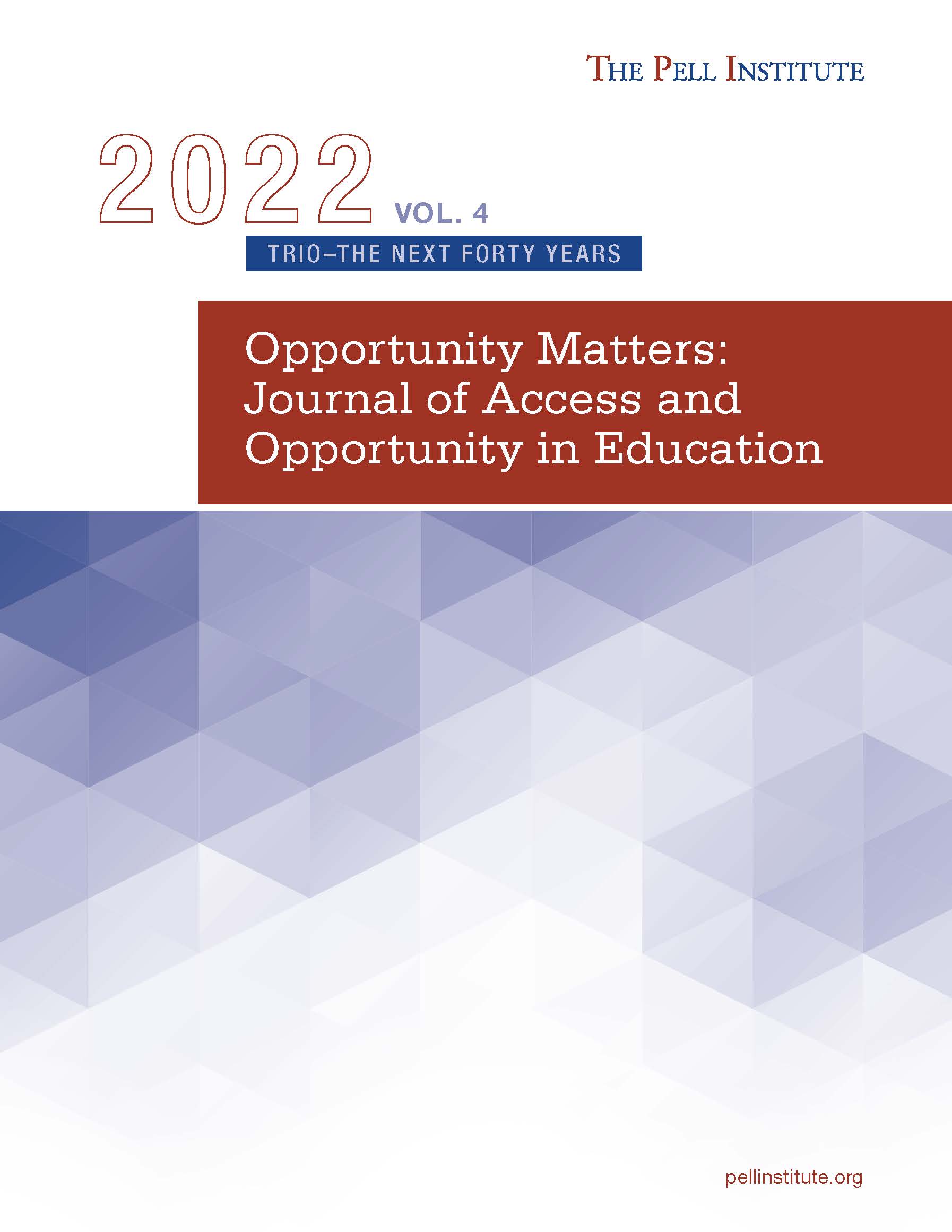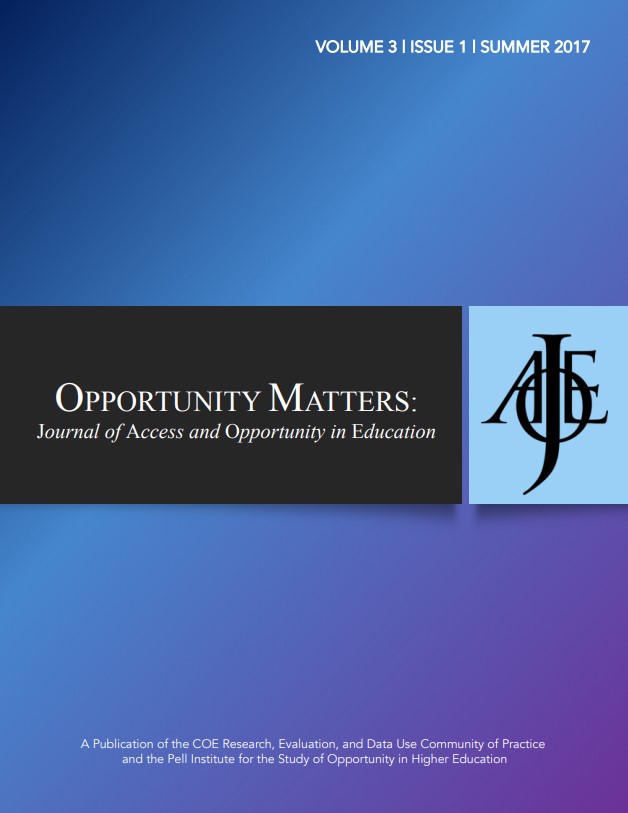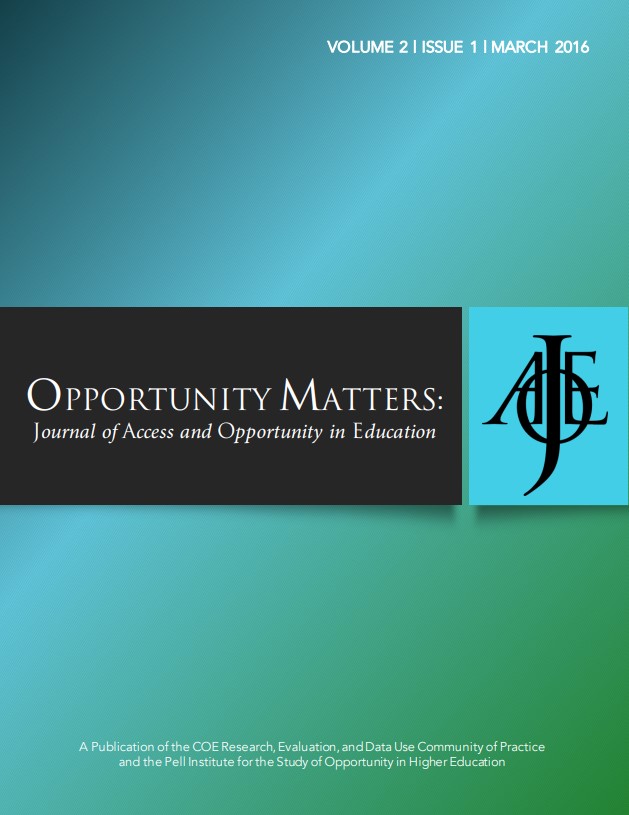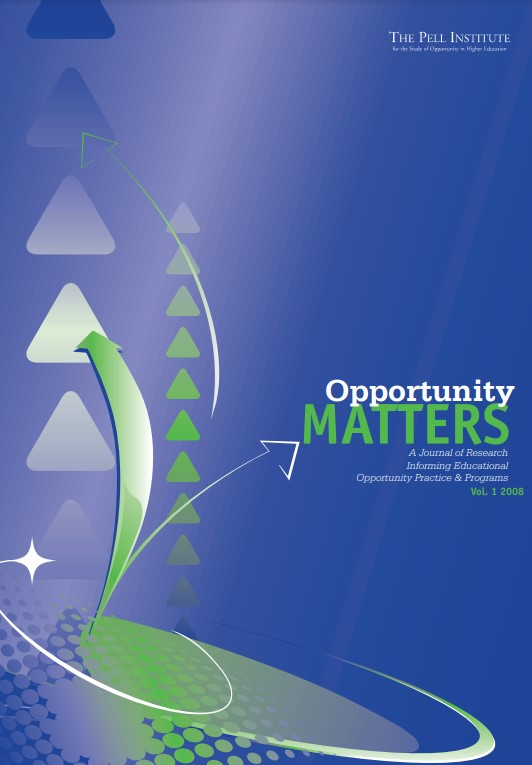Call for manuscripts
Contribute to equity in higher education with the Pell Institute’s Opportunity Matters Journal
We invite authors currently researching or recently completed research about equity in education with an emphasis on first-generation students, students from low-income backgrounds, and students with disabilities to submit their manuscripts for consideration for Volume 6 of the Opportunity Matters Journal. Manuscripts should propose actionable recommendations for advancing equity in higher education. The deadline to submit is Tuesday, July 1.
2024
Volume 5: Bridging Access, Opportunity, and Equity Through Education Attainment and Wellbeing
Volume 5 of Opportunity Matters Journal is official available for download! This edition dives into equity in higher education, featuring innovative practices, powerful narratives, and cutting-edge research.
What’s Inside:
- Research on access, opportunity, and intersectionality
- Practice briefs with actionable frameworks
- Stories from students, alumni, and practitioners
Volume 5: Bridging Access, Opportunity, and Equity Through Education Attainment and Wellbeing
Meet the Opportunity Matters Journal Editorial Board
We invited passionate individuals, including alumni, practitioners, and faculty, to join the Editorial Board for Volume 5 of the Opportunity Matters Journal (OMJ). The editors engaged in a masked peer-review process and assessed manuscripts for scholarly quality as well as adherence to the journal standards. Their contributions involved guiding manuscripts through an equity-minded review process and overseeing required revisions.
Stay Connected
The Pell Institute is the first research institute to specifically examine the issues affecting educational opportunity for low-income, first-generation, and disabled college students. Learn more about the Pell Institute, including our mission, purpose, goals, and history.





